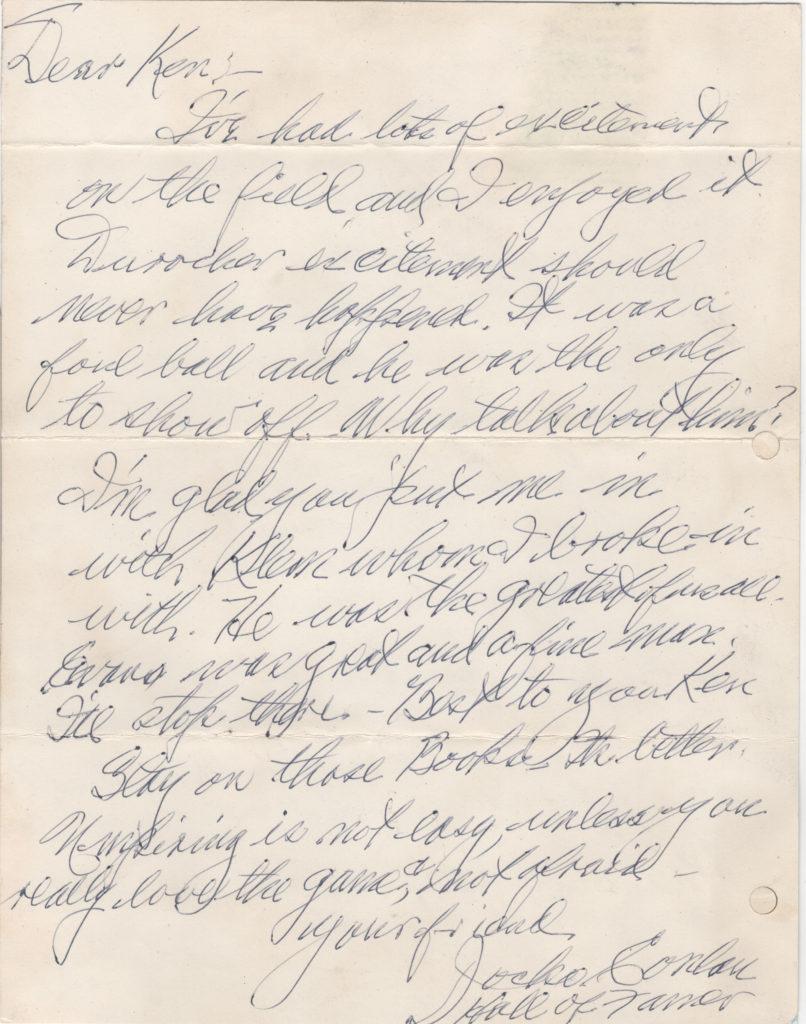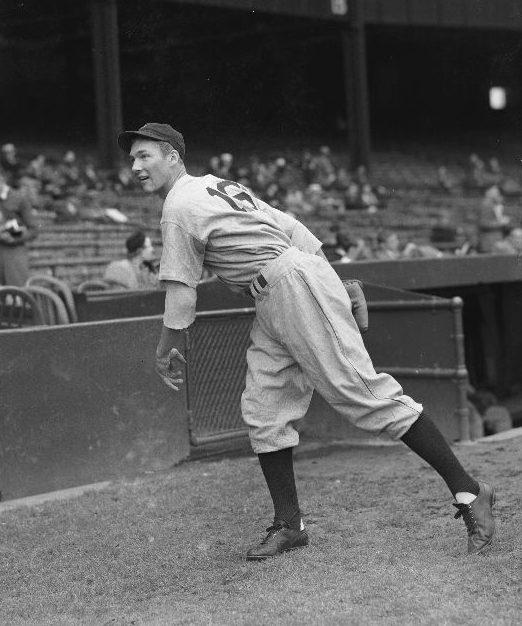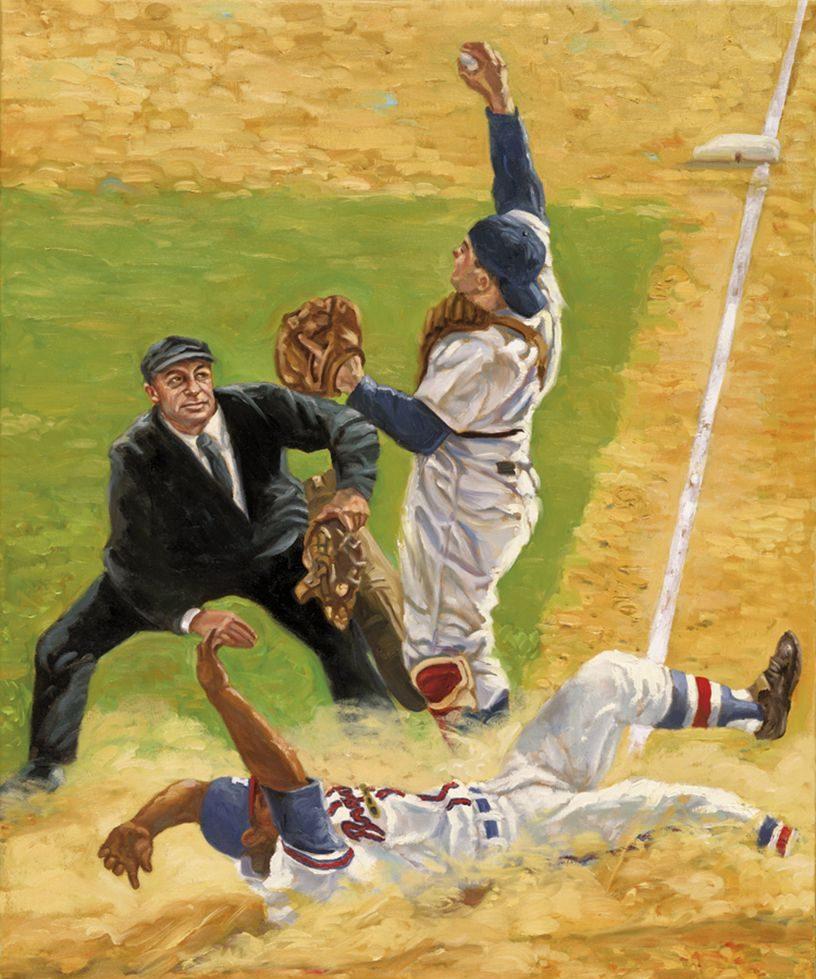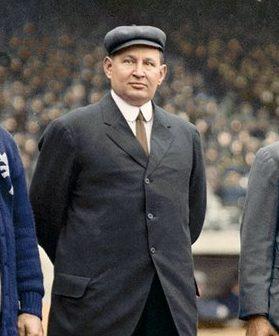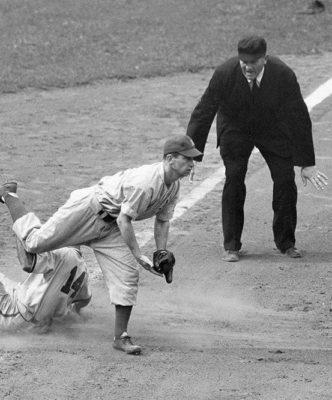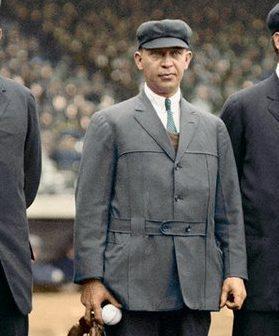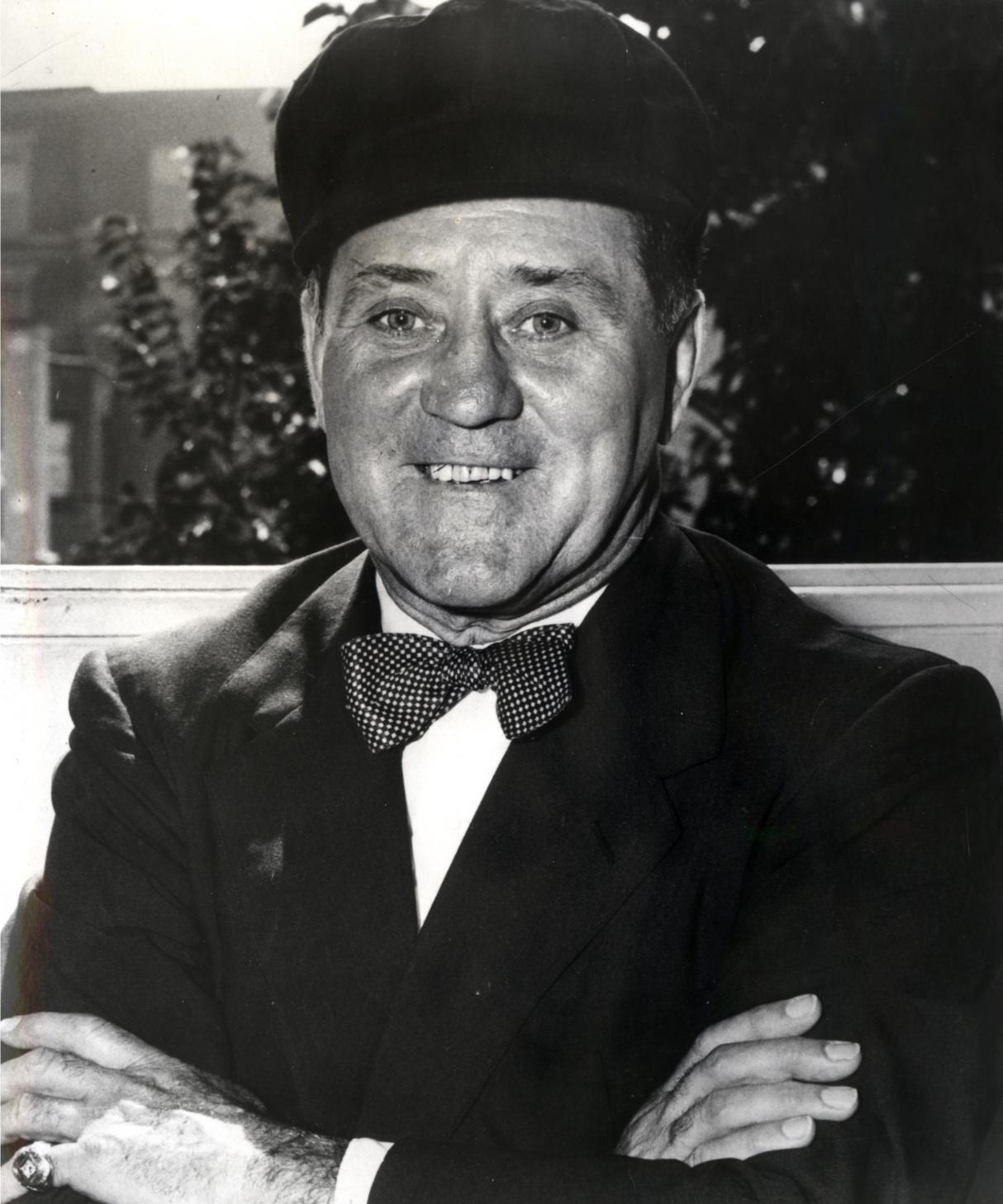Billy Evans
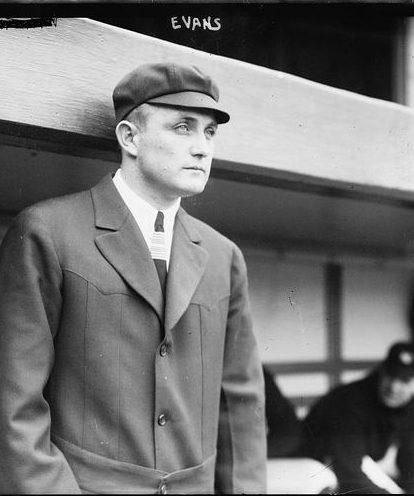
| Birthdate | 2/10/1884 |
| Death Date | 1/23/1956 |
| Debut Year | 1903 |
| Year of Induction | 1973 |
| Teams | MLB |
| Positions | Executive, Umpire |
History’s youngest MLB ump at 22, Billy Evans officiated from 1906-27. Later he was the 1st MLB executive to hold the title of General Manager.
Leave a commentIn the collection:
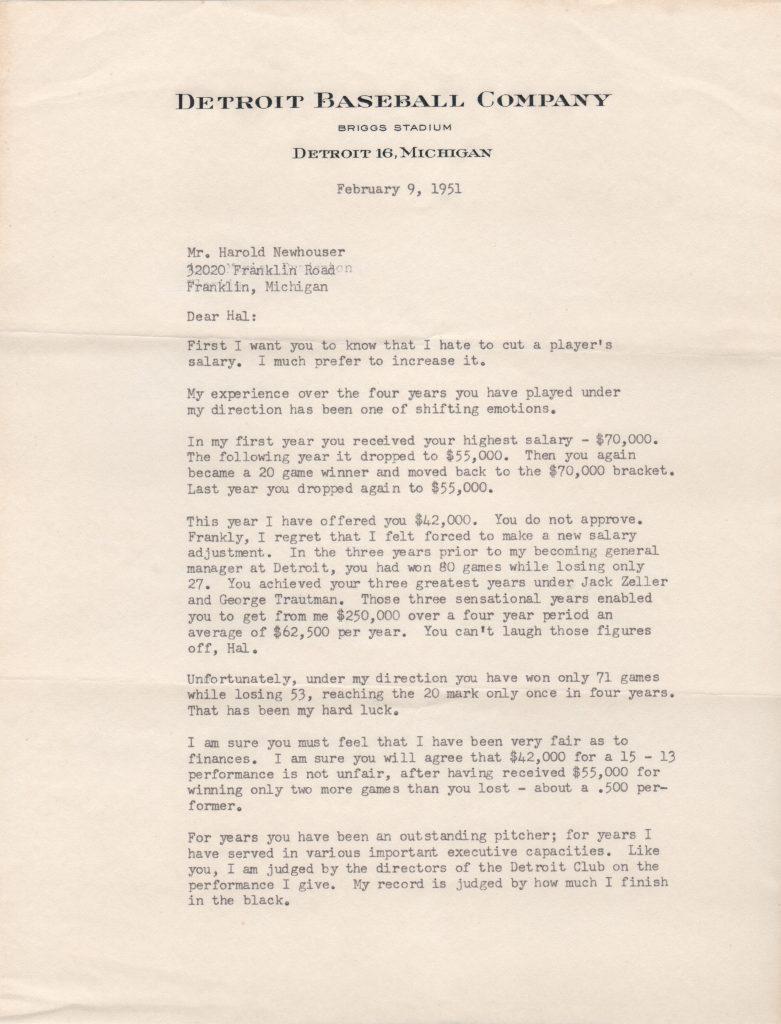
Evans negotiates 1951 contract for HoFer Hal Newhouser as Tigers GM
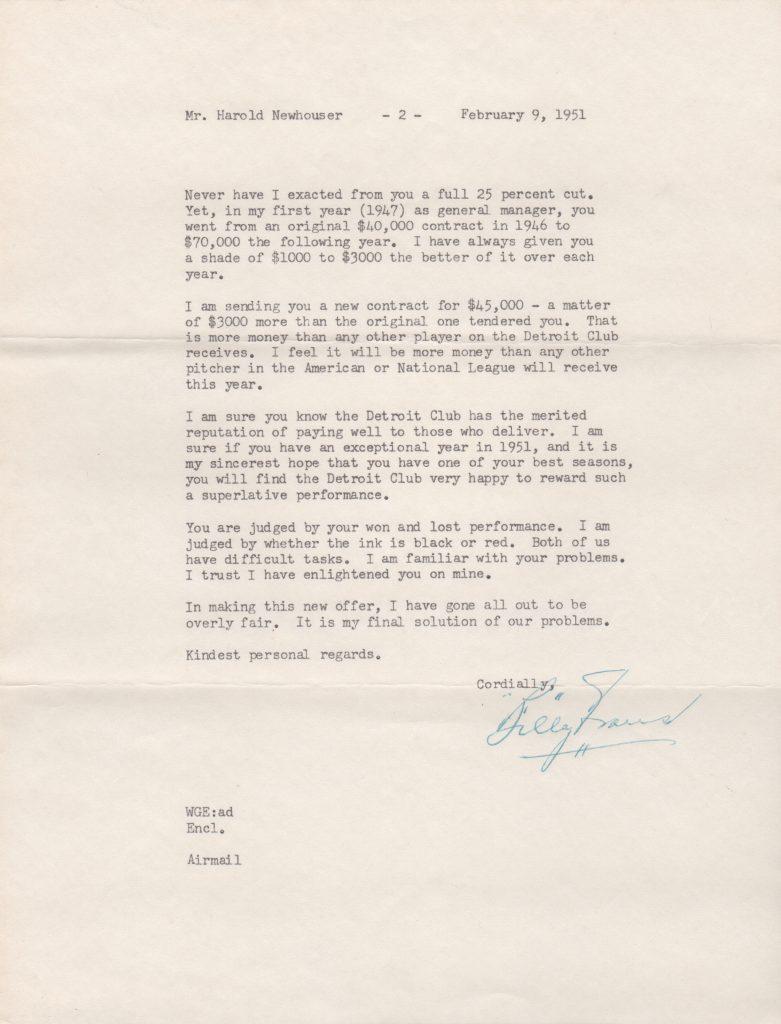
Second page of letter from Tiger GM Billy Evans to ace Hal Newhouser
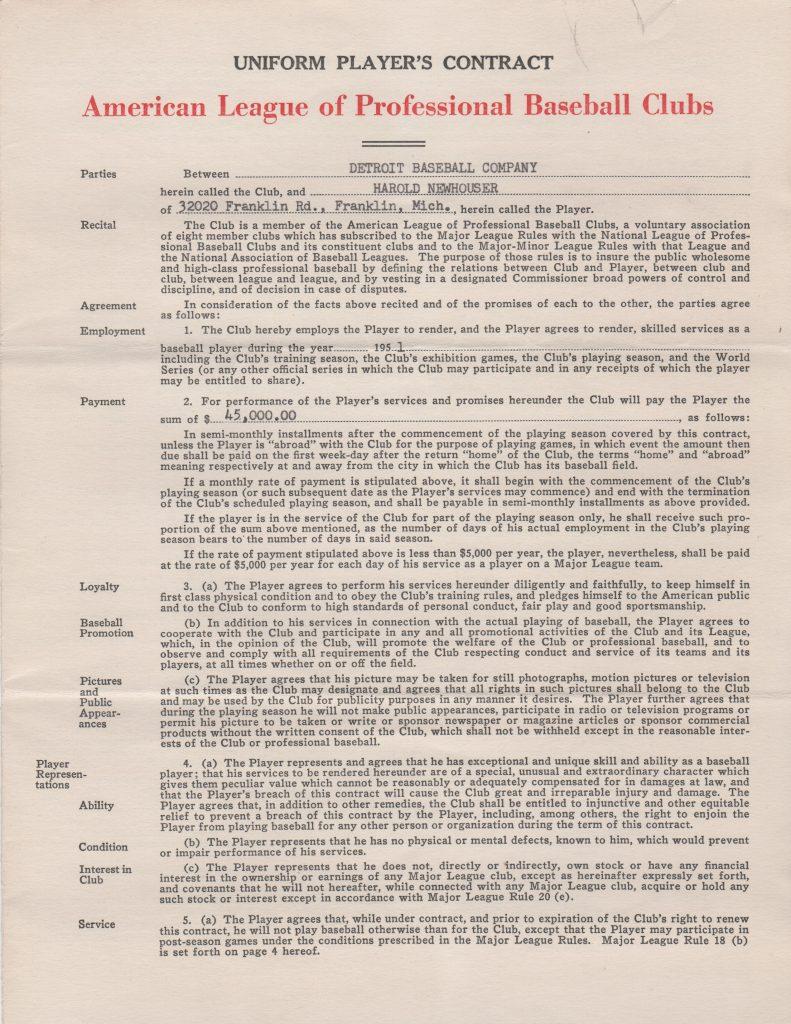
Page one of the contract offering $45,000 to Newhouser
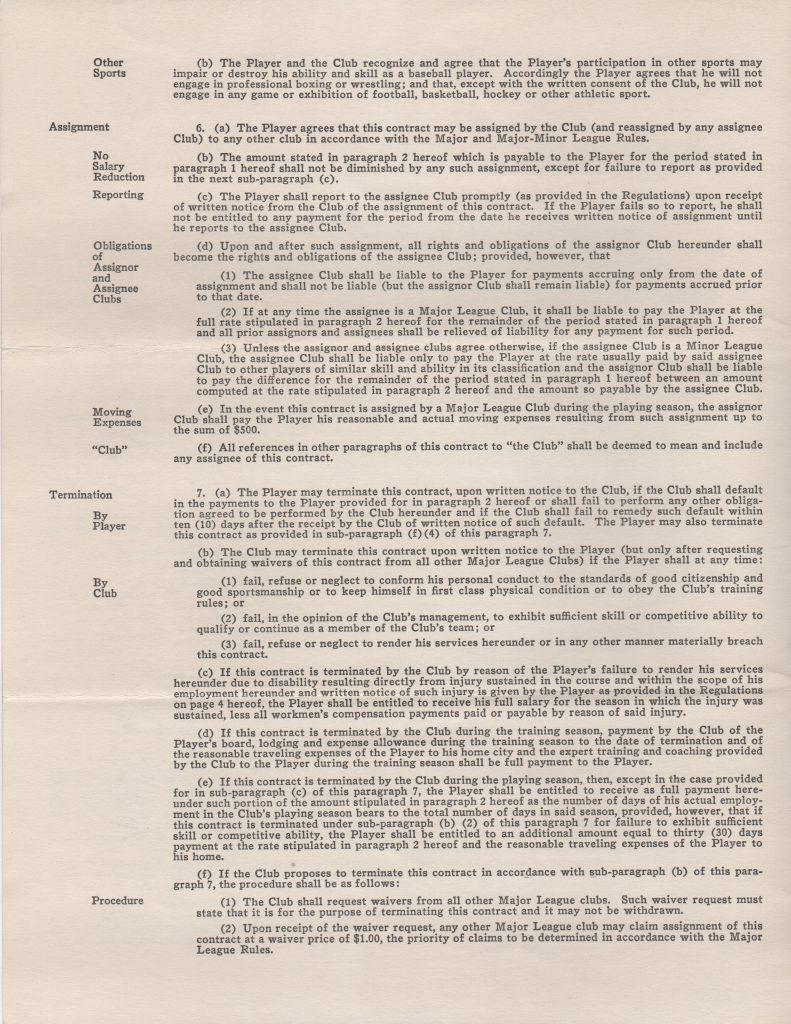
Page two of the standard 1951 contract
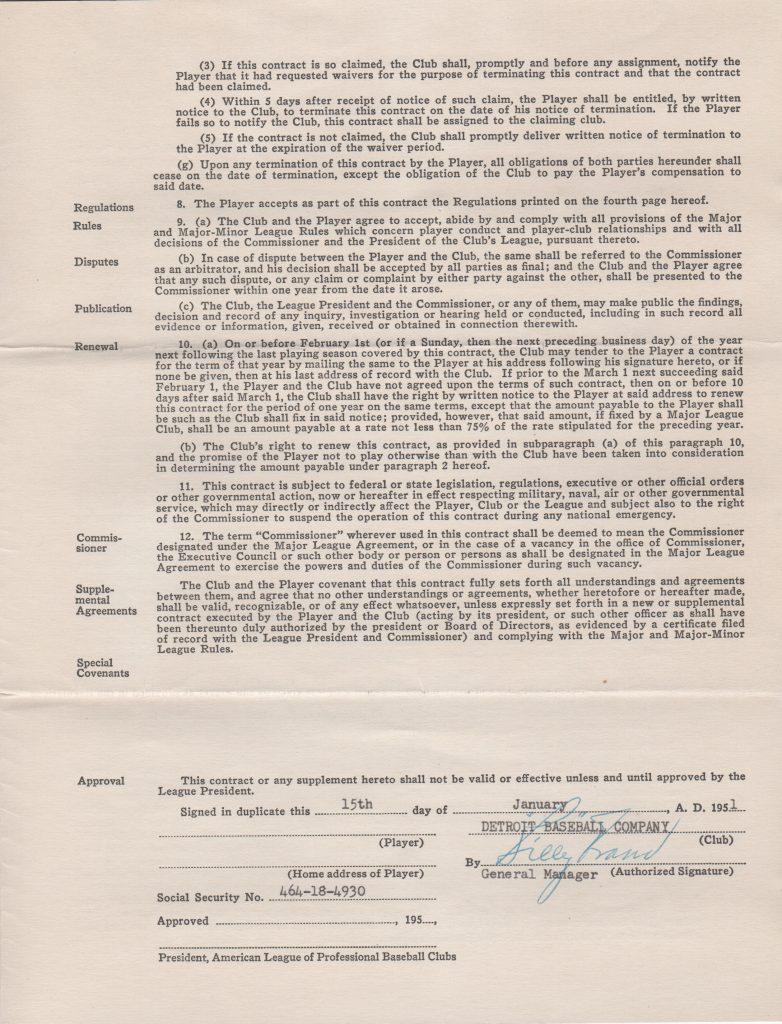
The third page is signed by Billy Evans
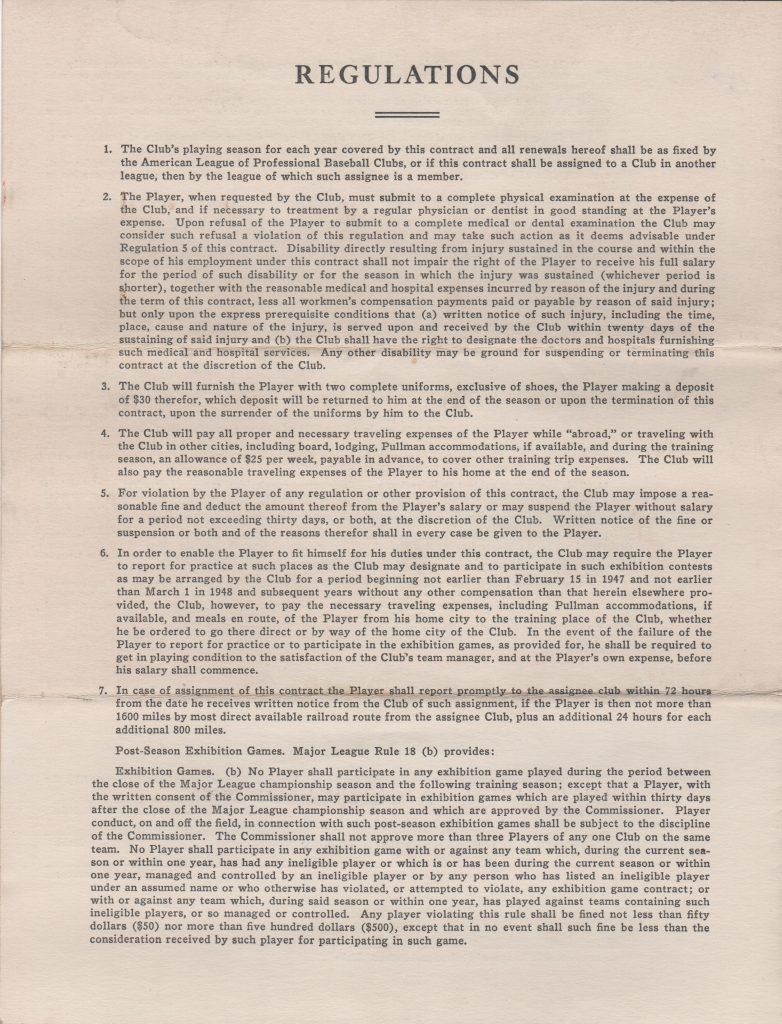
Final page of Newhouser's 1951 pact
